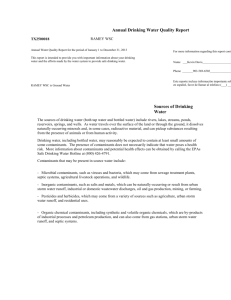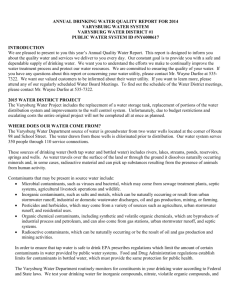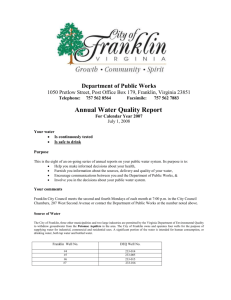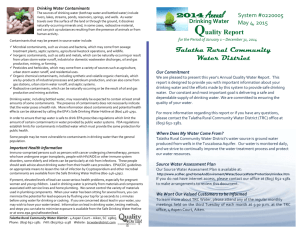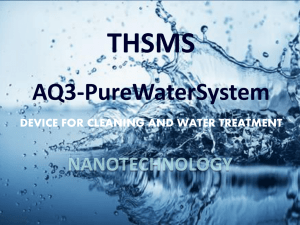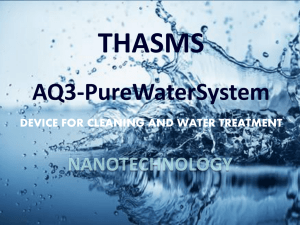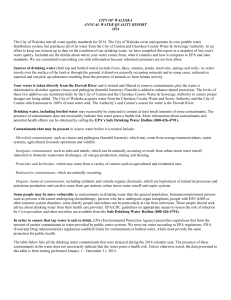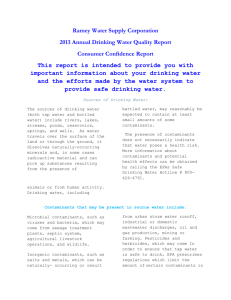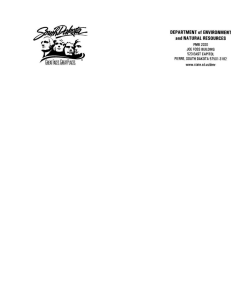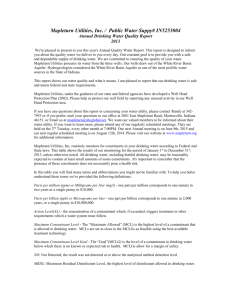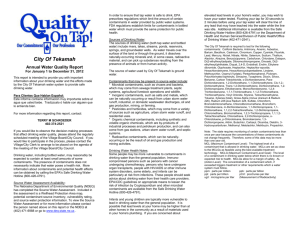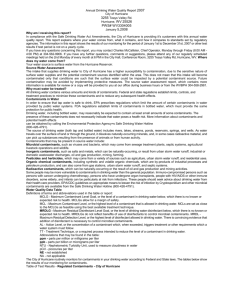Document 5903168
advertisement
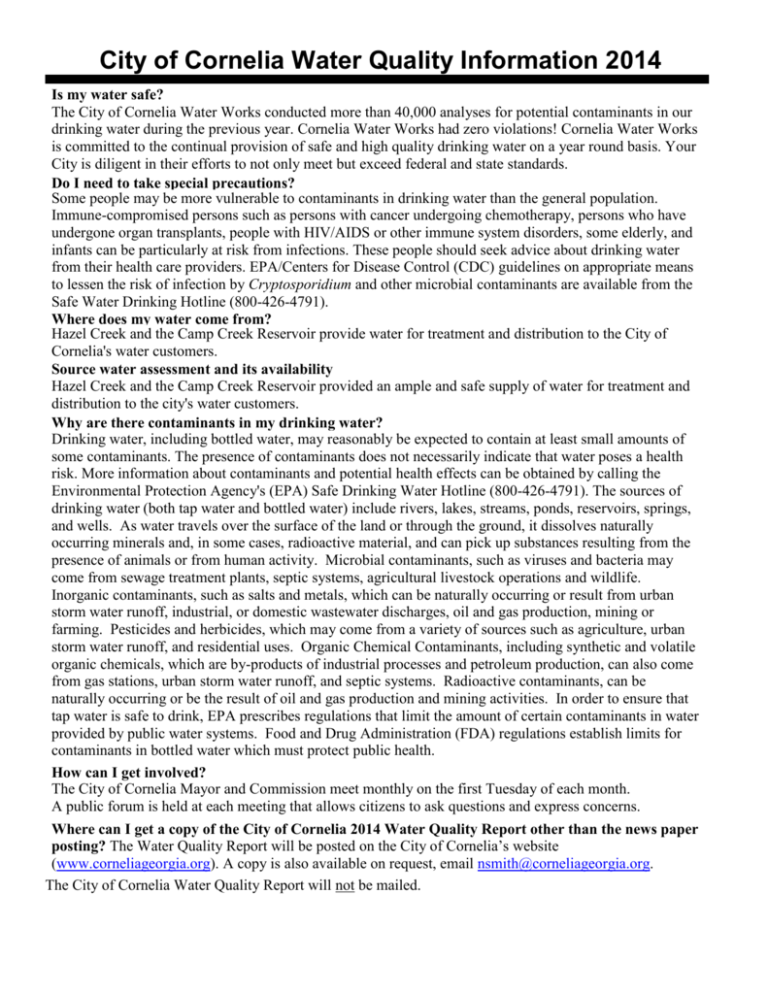
City of Cornelia Water Quality Information 2014 Is my water safe? The City of Cornelia Water Works conducted more than 40,000 analyses for potential contaminants in our drinking water during the previous year. Cornelia Water Works had zero violations! Cornelia Water Works is committed to the continual provision of safe and high quality drinking water on a year round basis. Your City is diligent in their efforts to not only meet but exceed federal and state standards. Do I need to take special precautions? Some people may be more vulnerable to contaminants in drinking water than the general population. Immune-compromised persons such as persons with cancer undergoing chemotherapy, persons who have undergone organ transplants, people with HIV/AIDS or other immune system disorders, some elderly, and infants can be particularly at risk from infections. These people should seek advice about drinking water from their health care providers. EPA/Centers for Disease Control (CDC) guidelines on appropriate means to lessen the risk of infection by Cryptosporidium and other microbial contaminants are available from the Safe Water Drinking Hotline (800-426-4791). Where does my water come from? Hazel Creek and the Camp Creek Reservoir provide water for treatment and distribution to the City of Cornelia's water customers. Source water assessment and its availability Hazel Creek and the Camp Creek Reservoir provided an ample and safe supply of water for treatment and distribution to the city's water customers. Why are there contaminants in my drinking water? Drinking water, including bottled water, may reasonably be expected to contain at least small amounts of some contaminants. The presence of contaminants does not necessarily indicate that water poses a health risk. More information about contaminants and potential health effects can be obtained by calling the Environmental Protection Agency's (EPA) Safe Drinking Water Hotline (800-426-4791). The sources of drinking water (both tap water and bottled water) include rivers, lakes, streams, ponds, reservoirs, springs, and wells. As water travels over the surface of the land or through the ground, it dissolves naturally occurring minerals and, in some cases, radioactive material, and can pick up substances resulting from the presence of animals or from human activity. Microbial contaminants, such as viruses and bacteria may come from sewage treatment plants, septic systems, agricultural livestock operations and wildlife. Inorganic contaminants, such as salts and metals, which can be naturally occurring or result from urban storm water runoff, industrial, or domestic wastewater discharges, oil and gas production, mining or farming. Pesticides and herbicides, which may come from a variety of sources such as agriculture, urban storm water runoff, and residential uses. Organic Chemical Contaminants, including synthetic and volatile organic chemicals, which are by-products of industrial processes and petroleum production, can also come from gas stations, urban storm water runoff, and septic systems. Radioactive contaminants, can be naturally occurring or be the result of oil and gas production and mining activities. In order to ensure that tap water is safe to drink, EPA prescribes regulations that limit the amount of certain contaminants in water provided by public water systems. Food and Drug Administration (FDA) regulations establish limits for contaminants in bottled water which must protect public health. How can I get involved? The City of Cornelia Mayor and Commission meet monthly on the first Tuesday of each month. A public forum is held at each meeting that allows citizens to ask questions and express concerns. Where can I get a copy of the City of Cornelia 2014 Water Quality Report other than the news paper posting? The Water Quality Report will be posted on the City of Cornelia’s website (www.corneliageorgia.org). A copy is also available on request, email nsmith@corneliageorgia.org. The City of Cornelia Water Quality Report will not be mailed.
